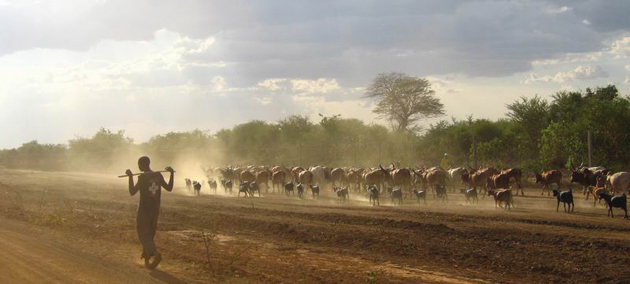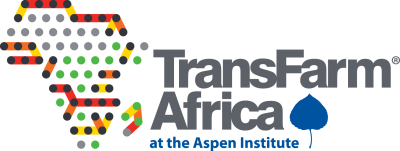April 19, 2012 – Colette van der Ven
“I am sorry,” an elderly man mumbled as I was walking up a hill, looking rather lost. I couldn’t figure out why he was apologizing. Was it because I looked lost, or because I was walking uphill? Either way, I smiled and thanked him, quietly amused by this Tanzanian practice of apologizing for the inconvenience of others. I wasn’t, however, in the least inconvenienced. I was appreciating Arusha’s moderate climate and green landscape—a stark difference from humid Dar es Salaam—while looking for the CEO of Golden Food Products Ltd.
When I finally found Mr. Ayo’s factory, we set down for tea with milk and sugar—a remnant of Tanzania’s colonial past—and I learned all about his family business. Since Golden Food Products began producing peanut butter and jam in 1998, it had expanded significantly and had also began to sell organic spices and honey. The company had built quite a name for itself, as its high quality products were sold in the local supermarkets and frequently used by high-end hotels. It supported over 3000 smallholder farmers, provided employment and health benefits to a few dozen women, and created a high-quality product for local consumers.
While I was thrilled to see the impact this local business was having on the economy, I was wondering why small/middle-scale agro-processors are such a rarity in Tanzania. Are the initial capital requirements too high? What are the policy and regulatory barriers to a flourishing business? What barriers prevent Tanzanian businesses from being competitive in the international market?
During my J-term in Tanzania, I talked to experts from the public and private sector, farmers, and government officials in an attempt to answer these and other questions related to middle-scale agriculture producers and processors. Some key obstacles emerged.
Tanzanian agro-processors and businesses are disproportionately affected by heavy taxes. District governments apply a 2.5% production tax when produce crosses district boundaries. Other taxes include a 1% tax over all invoices, a fee to get a business license that the government plans to reintroduce, and a 40% increase in tariffs on electricity usage. The last issue in particular is problematic for agro-processors like the Golden Food Products.
Another barrier is side selling. Many farmers and agro-processors in Tanzania provide credit to smallholder farmers to buy inputs (equipment, fertilizer, organic licenses, etc.). Side selling occurs when a smallholder farmer that has received such credit ends up selling its produce to a trader instead of the nucleus company to pay down credit.
Tanzanian agro-processors that are export-oriented have trouble being competitive internationally. One reason is the lack of comparative advantage. For example, when a leading Tanzanian cashew nut producer decided to set up a processing facility, it soon went bankrupt as it was less efficient than the cashew processors in India—the only country that had processing facilities in place at that time. The decades of experience had created highly skilled workers and an efficient processing process, with which the Tanzanian business was unable to compete. Other reasons include difficulty in meeting quality standards, particularly of the western markets, and an inability to compete with agricultural products that are heavily subsidized.
These examples, while incomplete, explain in part why there aren’t more agro-processors like the Golden Food Products in Tanzania. To move Tanzania up the value chain and reap more benefits of its untapped agricultural potential, the government should actively pursue policies that will incentivize entrepreneurs to set up farms as well as processing facilities. This could include, for example, subsidizing nascent industries and removing crop taxes and business fees, which would spur foreign investment. The international community, for its part, should be cognizant of the impact international trade standards can have on agro-processors in less-developed countries.
I developed this J-term opportunity through one of LIDS’ partner organizations, TransFarm Africa at the Aspen Institute. A scholarship from the Aspen Institute enabled me to spend time in Tanzania and conduct on research the regulatory landscape on agro-processors. This experience demonstrates the value of LIDS as a network, a venue of creativity and new ideas, and a linkage to the professional world of law and development.


